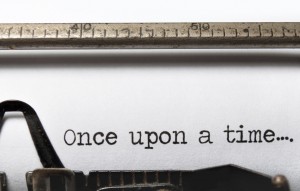Thanks to social media, we’re all writing a lot more. Every day, untold amounts of information are posted to the internet .
Given the quality of the common tweet or Facebook post, the cynics among us might use this data to dispute the commonly accepted wisdom that writers get better at writing chiefly through the act of writing.
Even the best intentioned among us have our lapses. Sometimes the dreaded autocarrot is the culprit, but whatever the cause, it’s a lazy inner editor that lets us hit “Post” without double-checking our content.
The same issues can leak into the rest of our writing as well. Nothing subverts a well-crafted argument more mercilessly than a careless error. We’ve covered run-on sentences and misused words before, but here are a few other common errors to keep in mind for any type of writing.
Mind your apostrophes
You’re vs. Your: countless faces have met palm at the misuse of this basic contraction. It’s not the only word whose apostrophe use is commonly mistaken. They’re out there.
Writers use apostrophes in two ways:
1. to mash a pair of words together into a contraction.
2. to denote possession.
There are only four possessive pronouns that don’t use apostrophes: their, your, its and whose. Commit these to memory.
Every time you write “it’s” “or who’s” read it aloud with the contraction taken out:
“It’s [it is] a bad idea to take the dog way from its [possessive] food bowl.”
“Whose [possessive] dog is it anyway? And more importantly, who’s [who has] got bandages?”
Know the word you’re trying to use
Bookmark Dictionary.com now. Use it often, even when you’re certain you don’t need to. Typos happen, they can slip through the cracks when you’re drafting, but there isn’t as much forgiveness when you use an entirely wrong word. You may be a tremendous wit with a flair for narrative, but no anecdote in the world is going to neutralize the snake venom.
Mixed metaphors and incorrect idioms
Before his team was thoroughly trounced in the decisive game 5 of the NBA Finals, LeBron James told the assembled media that “history is made to be broken.” All respect to revisionist historians and Dr. Emmett Brown, but few things are as irreversible as history.
LeBron mixed his metaphors. “Records are meant to be broken” is the common sports cliché, typically referring to things like Wilt Chamberlain’s 100-point game or Brett Favre’s streak of consecutive starts.
LeBron wanted to dismiss the fact no team had ever come back from a 3 games to none deficit to win the NBA Finals. Speaking off the cuff, he instead mistakenly made a claim that, until we discover how to break the laws of thermodynamics, is entirely impossible.
Idiomatic language is closely related. While idioms and colloquialisms can provide color and uniqueness to the voice of your work, they should be used with caution even under the best circumstances.
To a non-native speaker, for example, “beating someone to the punch” could just mean you’re very thirsty at a party. Describing someone’s effort as “swinging for the fences” wouldn’t mean anything to someone who doesn’t know baseball.
Write in a clear, direct voice
In a previous blog, I discussed George Orwell’s famous essay on political writing. Three of his six rules to fix the bad writing of his day (and, sadly, ours still) directly involved writing clear, direct sentences. The University of Wisconsin Writing Center lists “sentence sprawl” as the second-most common error in student writing.
To paraphrase Orwell:
Never use a long word when you can use a short one.
If you can remove a word, do so.
Don’t use foreign words, scientific words or technical jargon when an equivalent exists in everyday English.
These are not always the simplest rules to follow, particularly among the perspicacious among us, and when considering that it is still de rigeur of celebrated authors to bombard us in haughty French and Latin phrases.
If you want to see how to write clearly and directly while still garnering praise as the most talented writer of your generation look no further than Ernest Hemingway and Raymond Carver.
If you really want to break the rules, write dialogue
Writers of fiction and creative nonfiction know the benefits and necessity of including dialogue in their texts. It breaks apart the monotony of description and exposition and lets the advancement of plot happen in conjunction with characterization.
The biggest mistake a writer can make in dialogue, though, is writing it perfectly. No one, not even the Queen Mother speaks in perfect English all of the time. So if you really want to cut your language loose and break some of the rules, write a story with some dialogue (or a blog with a conversational voice). But just be sure to know the rules before you decide you need to break them.

